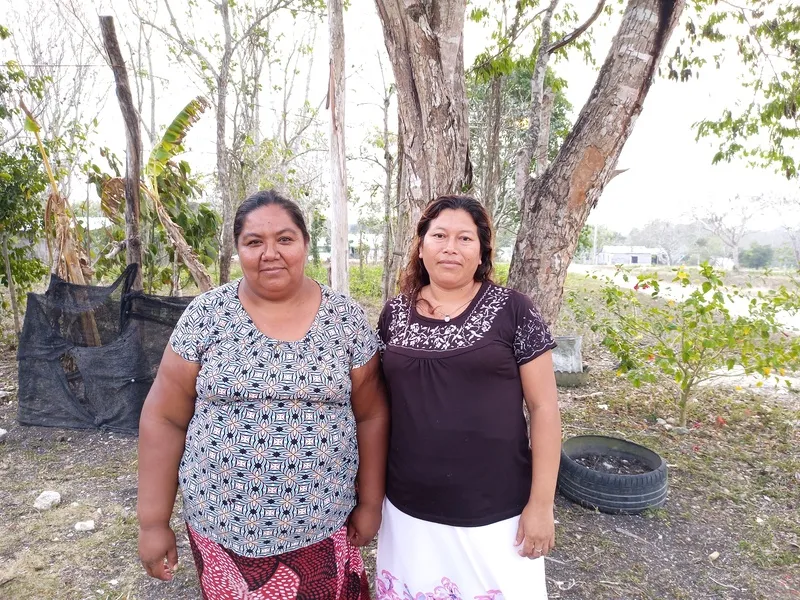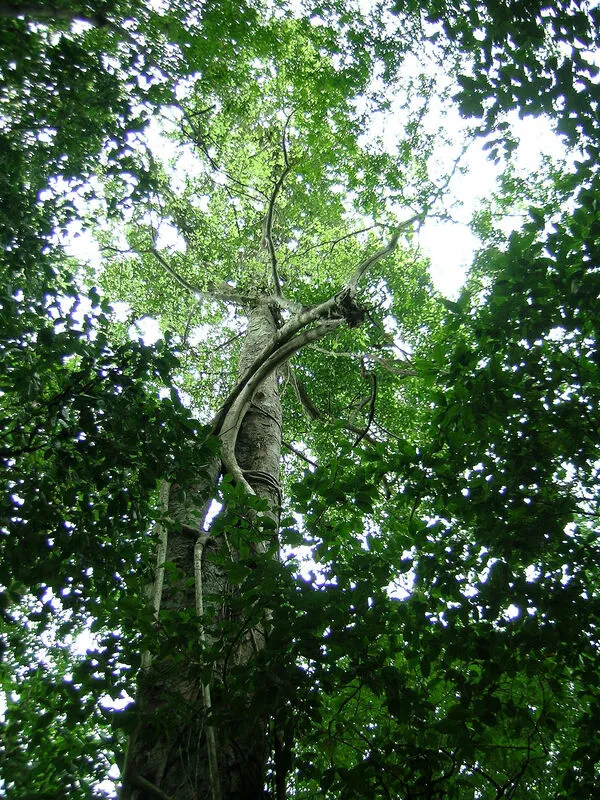Women from Ejido Centauro del Norte and a culinary project that takes advantage of Ramón's seed



'We were like 10 in the group, the one who led the project was Doña Elena: with her we were looking for women who would like to participate in the use of the Ramón seed. I told him that I wanted to experiment with that. I liked working with them. They made a lot of orders from us. All the product we made was sold,” says Leticia Real, a resident of the Centauro del Norte ejido, located in the municipality of Calakmul, in southeastern Mexico.
With an area of more than 9 thousand hectares, the ejido Northern Centaur is immersed in the largest forest region in the Mexican tropics, so remnants of jungle and biodiversity constitute the town. Among them, Ramón stands out (Brosimum alicastrum), a noble emblematic tree native to Central America whose use dates back to Mesoamerican times, where the Mayans attributed important dietary and medicinal benefits to it, beyond its recognized presence in the worldview and identity of this culture.

Ramón tree (Brosimum alicastrum)
Ramón is a widely spread tree in the Yucatan Peninsula. Historically valued for its wood, for its leaves as fodder for livestock, and for its seed and fruit as an important source of food, it has managed to remain both in the increasingly scarce pristine areas of southeastern Mexico, as well as in the backyard gardens of many Mayan families. 'We organized ourselves and went to the mountains to look for Ramón. We all met to cook in a little house we had. We prepared the product almost every week,” says Patricia Flores, a resident of Centauro del Norte. 'We went to the mountains all day for Ramón seeds; then we cooperated with each other to buy what we needed to place the orders'.
On the other hand, the presence of this tree depends on a variable that, beyond the cultural one, is ecological: in addition to meeting the humidity and drought conditions it needs to thrive, since the Yucatan Peninsula is a calcareous and shallow region, the ramón has managed to take root in a complex substrate, thus acting as shade, support, home and food for many other organisms that inhabit the jungle. The Ramón is that species that, with its presence, takes care of the many other lives that depend on it. Including the human one.
'For tamalito, we wash the Ramón seed and make it like a wet dough, then we put a little bit of chicken or sometimes pork too; for tortillas, just like with a little lime and water; for bread, we leave the pure seed to dry and then we grind it like cocoa, removing a kind of flour. For Ramón's coffee, we roast it on the grill, but be careful because if it burns it gets bitter,” Patricia tells us. 'The Ramón Seed Cookie is also very delicious, with its little bit of oats. We put the fritters up to the banana fritters, 'adds Leticia. Beyond the form of preparation and the enormous tradition behind these foods, ramón implies a way of life for the women who inhabit these regions of Mexico.
Patricia and Leticia, like some other women, began with a project where they transformed the Ramón seed into food that both the community and people outside the community consumed. Although it is a job that both enjoyed, the problem behind the existence of these projects does not lie in the profits generated Per se, because 'El Ramón sells very well and there are seeds everywhere' -Patricia tells us with longing- but in the distribution of them and the organizational scheme that allowed for the fair solvency of this project: 'the truth is that we really liked doing it, but it wasn't that profitable. There was a lot of support among women, also a lot of support to build the little house we needed: they gave us the oven, the dryer, they gave us a stove, a mill. We laid boards, we laid the floor, the wood, we built it, well. The truth was that this project was working well, but the problem was that a lot of the money we earned went into the gasoline needed to get the product from here in the ejido to other communities, and because more and more people from outside were buying more from us, so we were losing more and more money and gasoline in distribution. '
In the case of Patricia and Leticia, dedicating themselves to transforming the seeds they found in their territories involved a different approach to their natural resources, an approach that, although today is in vogue, was not always so: that of consuming products that respond to a territorial, seasonal, nutritious, culturally appropriate and sustainable logic. 'The Ramón Seed has a lot of vitamins. For pregnant women, milk is very good for them. You drink Ramón coffee at night and it relaxes you, it removes insomnia, and many studies talk about its nutritional properties. ' The project that more than ten women developed in this town is a reflection of how the protection of natural resources occurs at every possible scale. Both Patricia and Leticia are aware of the importance of ramón in their jungles, the role they play with other animals, the forage that feeds their sheep, the role they play in supporting soils, but also, of the many sweets and nutritious foods that they could cook and market, implying a commitment to an alternative form of economy, based on the capacities of their territories and which encouraged women's community work.
'The seed you find lying around in the mountains, it's everywhere. On any road you will find Ramón's seed because here we take great care of him, he gives us a lot. The truth is that we don't know of another ejido that El Ramón works the way we did. Everything was very delicious for us. ' With these final words, Leticia finishes recalling the project she was once part of, not without the hope that by better managing the distribution and reach of the products they prepared, a new kitchen could emerge.

Patricia Flores and Leticia Real
We tell this story, of this great ejido, with whom we enjoy working together to take care of the jungles that give us life every day, because beyond being one of many valuable initiatives that seek a more sustainable relationship with the natural resources on which we depend, it is also a story full of hope and inspiration to resume in the future.
Acknowledgements
To Patricia Flores and Leticia Real for telling us about their experience; to Elva María Leyva Cruz, Project Development Coordinator in Toroto for facilitating this beautiful dialogue.
About the author
Sandra is Executive Editor in Toroto. She studied biology, is passionate about the different forms of life that exist on the planet and is fully committed to protecting and conserving them.
Explore reflections, research and field learning from our work in ecosystem restoration.